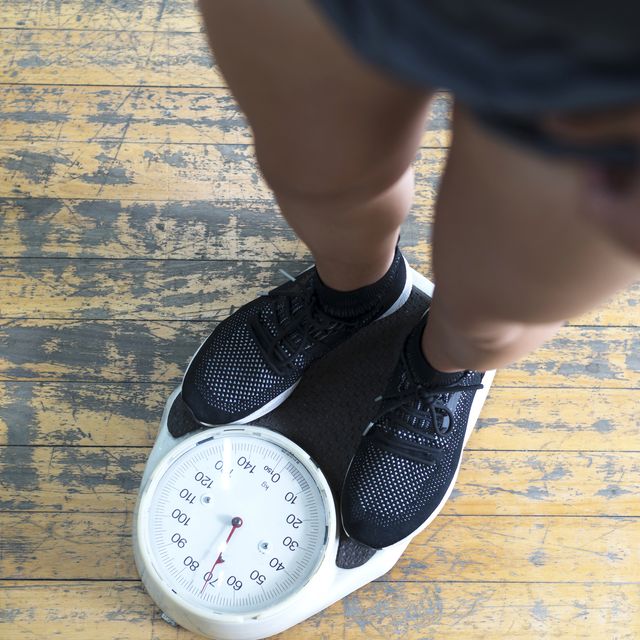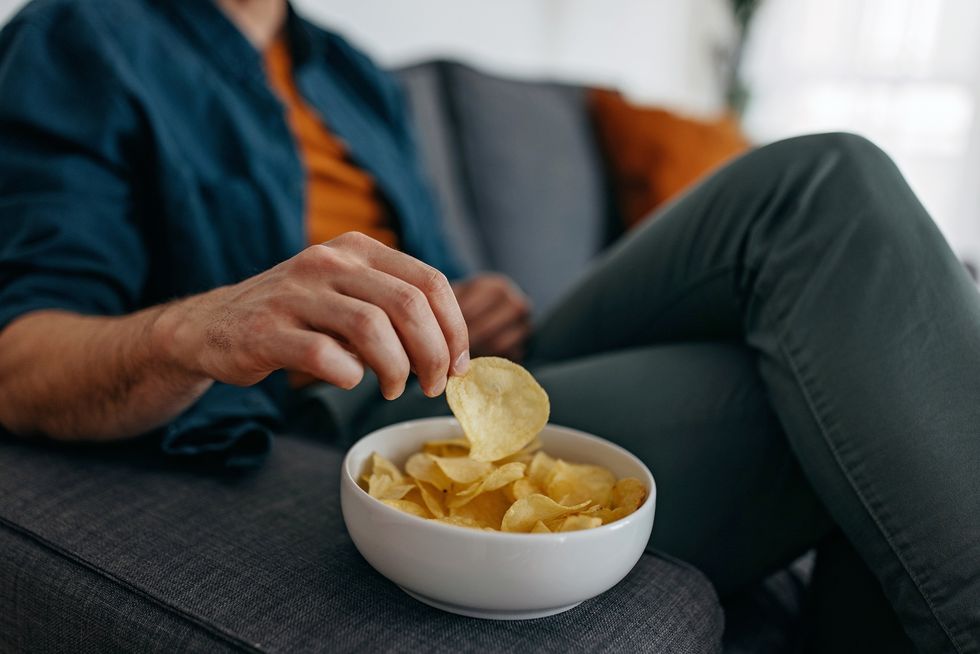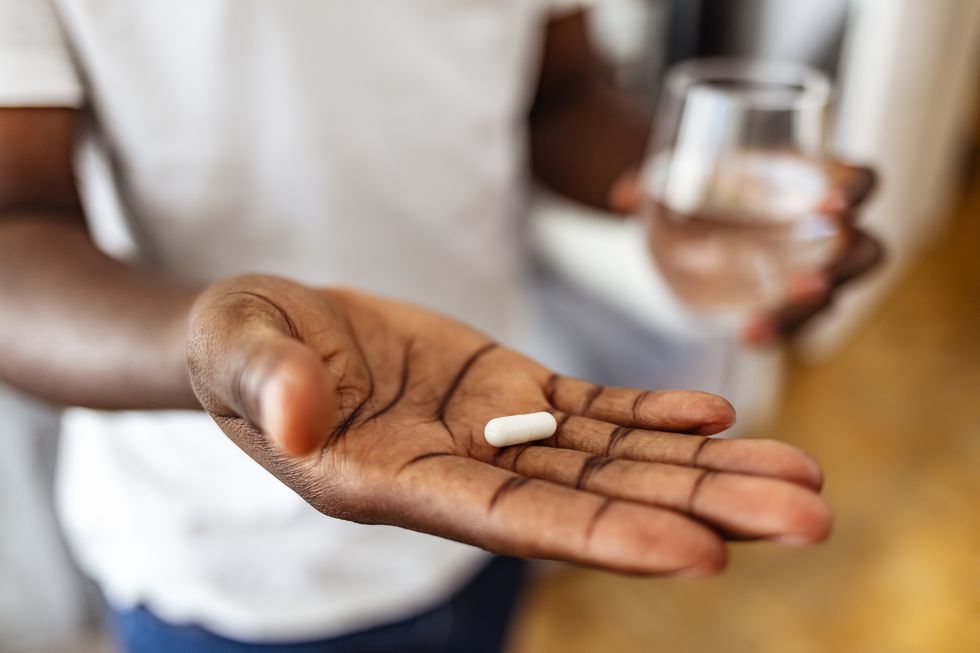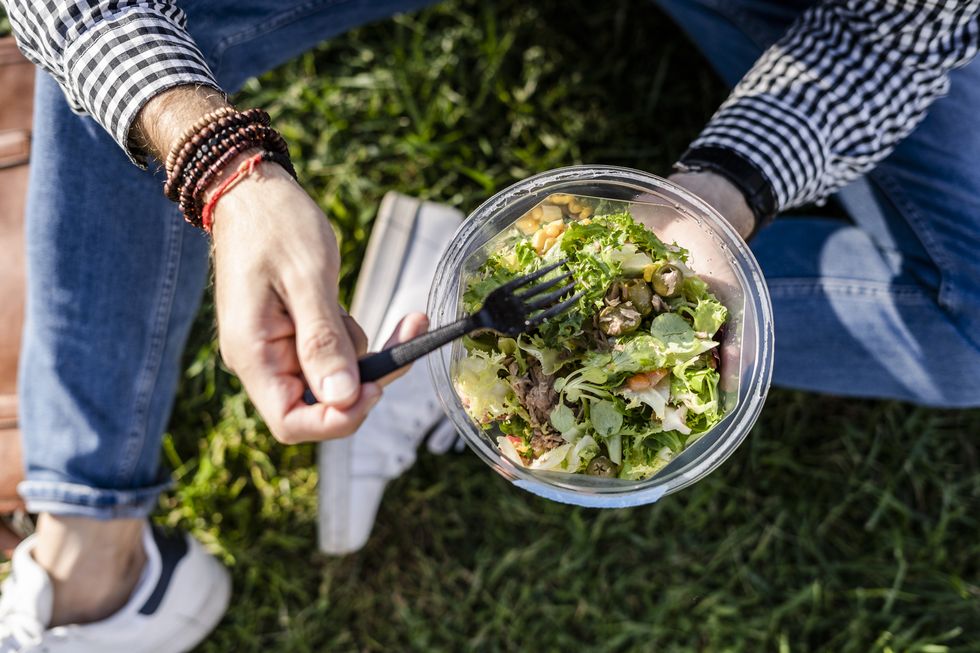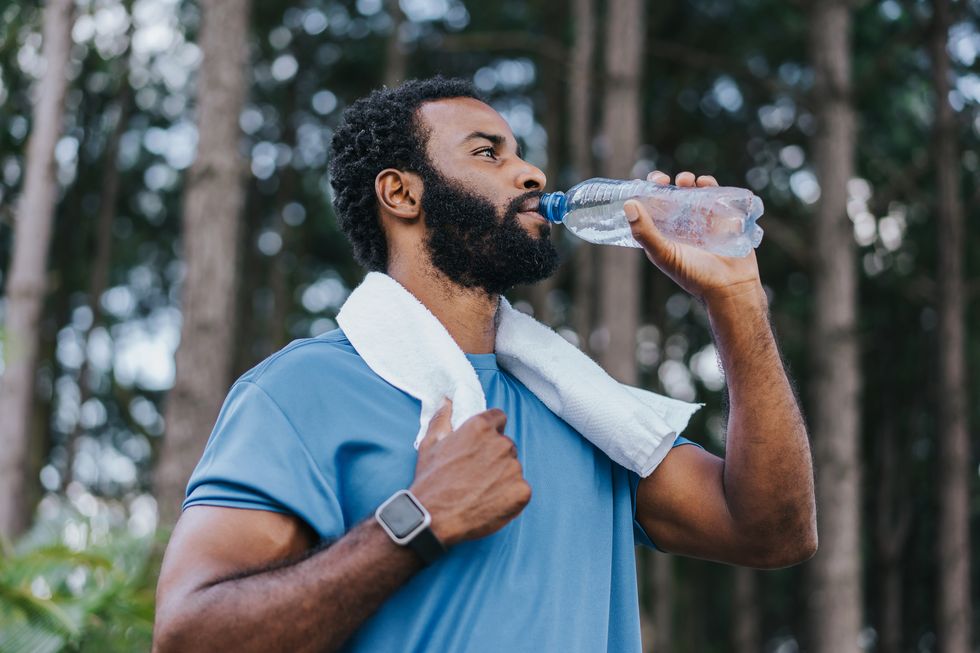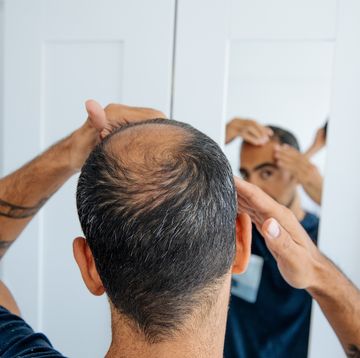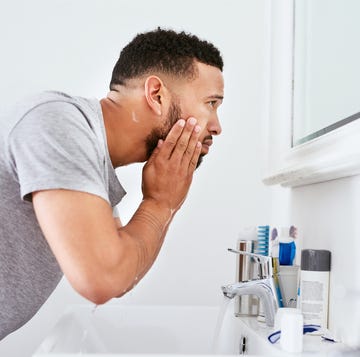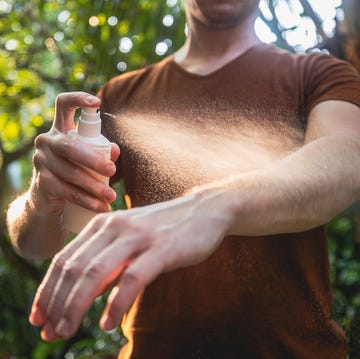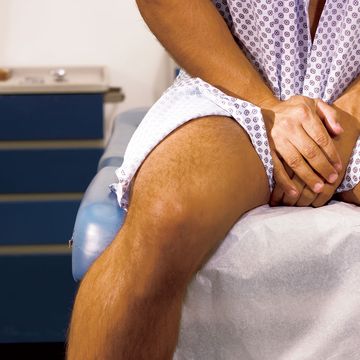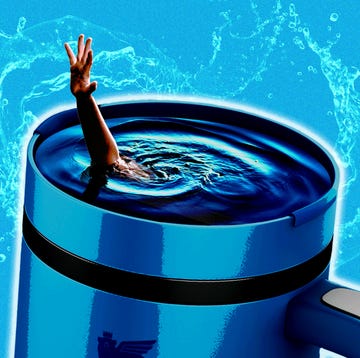FEELING A LITTLE puffy the morning after scarfing down a large pepperoni pizza is normal. You might also notice an extra pound or two on the scales. It’s usually all water weight, which can happen after eating a salty meal.
Water weight isn’t a technical term, explains Justin Hsu, M.D., a bariatric surgeon at the University of Toledo Medical Center. The swelling in your extremities and bloating is actually edema, which is when fluid builds up in your body’s tissues. It often occurs in your feet, ankles, and legs, but it can affect the whole body.
“When your sodium and water balance is out of whack, it causes you to retain fluid, and that can either be inside your blood vessels or in your subcutaneous tissue, and you’ll feel swollen,” he says.
Water weight, also known as water retention, is usually not something to worry about unless you have a medical condition, like heart, kidney, or lung disease. Dr. Hsu says a certain amount of water weight fluctuation is normal—usually, it just amounts to two or three pounds at most.
“There’s a misconception that water weight is connected to obesity,” he adds. “But, for the most part, water weight itself is not that significant. It doesn’t have that much of an impact on your weight itself.”
However, if you are dealing with significant excess weight or obesity, Dr. Hsu says it’s crucial to take steps to address your extra weight, which will reduce your risk for many health conditions.
When it comes to water weight, specifically, several factors can cause it. However, there are many ways to lose it and prevent it.
What is water weight?
Your body needs water—and lots of it—to function. About 60 percent of your entire body weight is water. Staying hydrated is essential for many bodily functions, including maintaining your body temperature, cushioning your joints, and getting rid of waste through sweat, pee, and poop.
Exactly how much water is in your body depends on your age, sex, and body composition—but what you eat, in particular, can cause you to retain a few extra pounds of water weight.
The amount of water weight your body stores can vary a lot, but the average person carries one to five pounds, says Nick Clayton, C.S.C.S., with the IDEA Health and Fitness Association. Athletes (or anyone training at least 90 minutes a day) can train their bodies to stash away double that (a good thing, he notes, because they’ll use it the next day).
When fluid gets trapped in your tissues, which can happen for a variety of reasons, it’s referred to as edema and might make you feel swollen. Dr. Hsu says it usually goes away in a day or two. If it doesn’t, you should see your doctor.
What Causes Water Weight
Water weight can make your belly feel bloated, your fingers or ankles feel swollen, and your skin just feel tight, Dr. Hsu says. Several things can cause it, including:
Eating Too Much Salt
The main contributor to water weight is eating a high-sodium diet. Sodium is an electrolyte that plays a key role in hydration, and consuming too much can increase water retention, Dr. Hsu says.
Sodium attracts water in the spaces outside of your cells and in your plasma, says Karen Ansel, M.S., R.D., author of Healing Superfoods for Anti-Aging: Stay Younger, Live Longer. That means when you knock back a burger and fries, the heavy load of sodium and carbs stores extra water weight in your tissues.
Eating a high-sodium meal also increases thirst, so you might drink more water, also contributing to water weight, research shows. But, Dr. Hsu says it’s still good to drink lots of water after a salty meal.
Starting a Low-Carb Diet
Carbs and sodium play an outsized role in excess water retention. Carbs are stored in your muscles and liver as glycogen, your body’s preferred energy source; each gram of glycogen, in turn, packs away about 3 grams of water with it, explains Clayton.
If you’ve ever tried a low-carb diet, you probably noticed the first few pounds practically fall off—and that’s due in large part to water weight. The first week you’re on a weight-loss plan, almost 70 percent of weight loss is water, Clayton says, a rate which drops to about 20 to 30 percent over a couple of weeks and then stabilizes as your body starts tapping into fat stores.
When you eat fewer calories than you’re using, your body doesn’t store more glycogen, and you’re using your existing glycogen stores—and water goes with it, Clayton explains.
“If you always eat carb-heavy and salty meals and then cut down on carbs and salt for a few days, you’ll be amazed at how much you’ll pee out in water weight,” says Ansel.
Taking Certain Medications
Edema is a side effect of some medications, according to the Cleveland Clinic. Generally, these include prescriptions that manage high blood pressure such as calcium channel blockers, corticosteroids, and nonsteroidal anti-inflammatory drugs (NSAIDs).
Certain diabetes medications can also cause water weight. So can testosterone therapy, Dr. Hsu says.
Your doctor can discuss whether your specific prescriptions cause water retention and possibly offer a different dosage or alternative treatment.
Living With Some Medical Conditions
Edema can also be a symptom of several underlying medical conditions. For example, heart failure and lung, kidney, liver, and thyroid diseases might lead to water retention, according to the Cleveland Clinic.
When your water weight seems to persist after a couple of days, it could signal something more serious is going on, Dr. Hsu says. In those cases, it’s a good idea to see your doctor.
How to Lose Water Weight
If you eat an especially salty meal, you might feel a little bloated, and that might last for a couple of days, Dr. Hsu says. It doesn’t necessarily mean you’ve gained weight. But there are some ways to prevent and lose that water weight:
Reduce Your Sodium Intake
The best way to lose the water weight, hands-down, is to eat fewer sodium-laden processed junk foods (like chips, cookies, and pizza) and to load up on whole foods—especially fruits and veggies, both Clayton and Ansel say.
“Highly processed foods tend to be packed with carbs and salt, so they’re a natural recipe for water retention,” explains Ansel.
Reducing sodium will also help lower your blood pressure, Dr. Hsu says. This might mean you won’t need blood pressure medication—drugs which can also lead to water weight.
Exercise More
Regular workouts can result in less water retention, since sweating sheds water, glycogen, and sodium, Ansel says.
“If you’re a heavy exerciser, it’s likely that you retain less water than the average person,” she explains. “That’s because we lose a fair amount of water-binding sodium through sweat. What’s more, when you exercise you’re also burning lots of glycogen, which also binds lots of water.”
Stay Hydrated
Although it may seem counterintuitive, drinking more water can actually help reduce water retention, Clayton says. Your body tends to hold onto water when you’re dehydrated.
While it’s important to stay hydrated to support your body’s core functions, you can’t “flush out” excess sodium from your system by drinking tons of water, Clayton says. Your body excretes sodium out all on its own given time (and a healthier diet); a sweaty workout can help the process along.
Eat More Potassium
Potassium helps maintain normal fluid levels in your cells. Eating foods rich in potassium, such as fruits, vegetables, and beans, can help counteract the effects of too much sodium, Ansel says. It’s recommended that men get 3,400 milligrams of potassium a day.
Reduce Carbs
Since carbs can cause you to put on water weight, limiting your carb intake can help you lose it. Your body stores carbs as glycogen, which attracts water—as much as 4 grams of water per gram of glycogen, studies show. Carbs also might drive up your insulin levels, which can increase your retention of sodium and then water.
Discuss Switching Your Medication
Pay attention to the side effects of any medication you’re taking, and if edema is one of them, talk to your doctor about how it’s affecting you, Dr. Hsu says. It’s possible that you could take a different medication or a different dosage.
Does weightlifting cause water retention?
Notice your legs or biceps looking extra swole after a hardcore bodybuilding workout? That muscle pump is actually water weight, and it’s a natural part of the healing process.
“Muscles may retain water after workouts to help repair micro-tears and inflammation that occur from the stress of the workout,” Clayton says. “It’s negligible, and the additional water in there goes away in an hour or two. You probably won’t see any difference in the scale the next day.”
When to See a Doctor
Feeling swollen and bloated a lot of the time? Dr. Hsu suggests seeing your doctor.
They can review your medications and diet and see what might be contributing to your water weight. They may recommend that you switch to a lower-sodium diet, for instance. Doctors will also rule out any serious health issues that could be causing the edema.
“When you have water weight, you always want to make sure you don't have an underlying medical condition that's contributing to that,” he explains.
